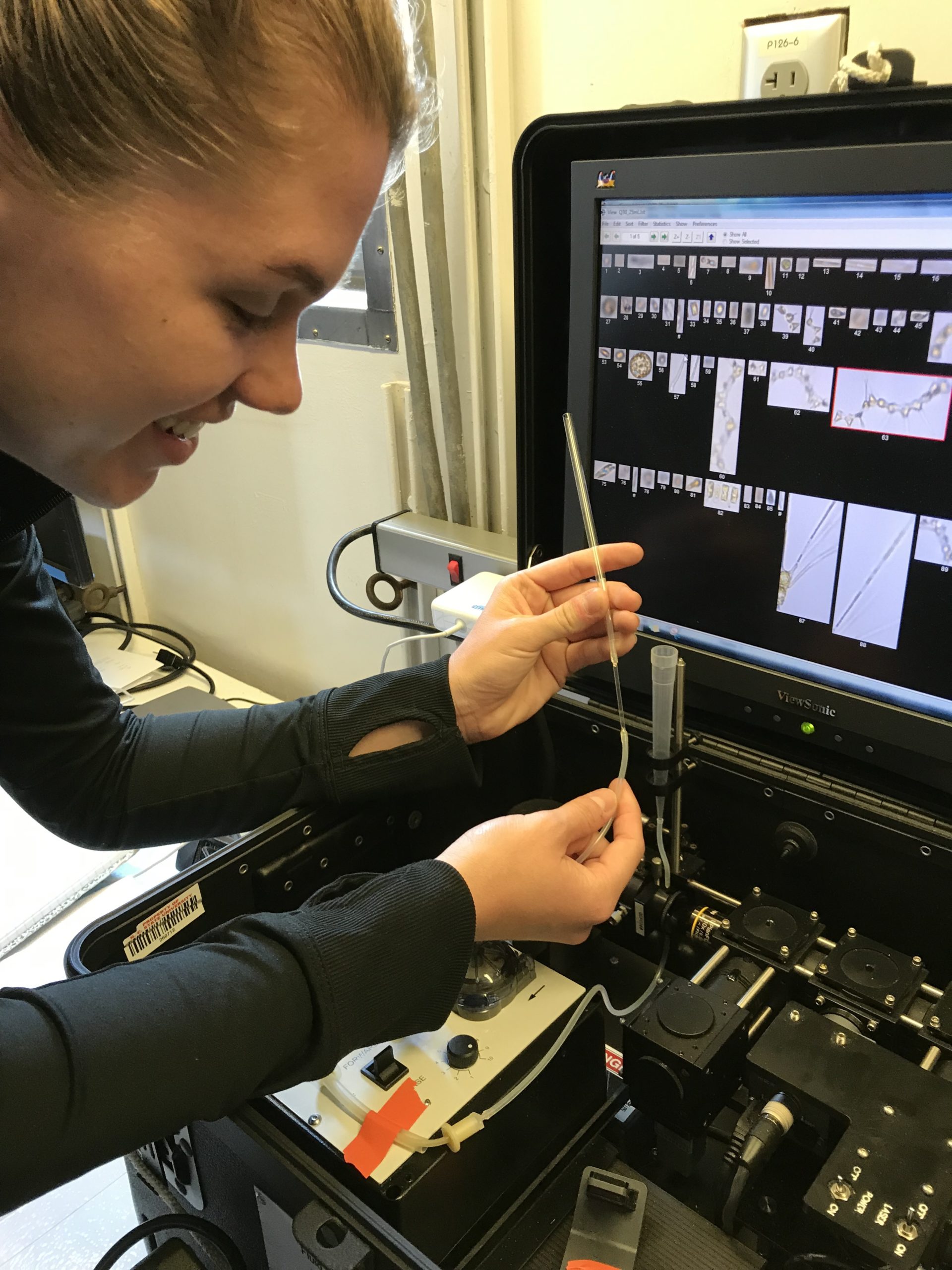18 May 2020
“Virtual Research Cruise” Activity
Posted by Shane Hanlon
By Miriam Sutton

Scientist prepares microbial samples for RNA analysis. Photo credit: Miriam Sutton
I boarded the Research Vessel (R/V) Oceanus with scientists from four research institutions between the United States and Canada. I settled into my cabin and took a few moments to review my goals and objectives for the next two weeks. My primary goal was to develop the “Virtual Research Cruise” activity. The expedition, referred to as the PUPCYCLE Cruise (Phytoplankton Response to Upwelling Conveyor Belt Cycles), investigated the relationship between phytoplankton and ocean upwelling cycles. The activity takes students aboard the R/V Oceanus and introduces them to the scientists, facilitates their understanding of the technologies being used, and guides them through the marine science concepts being explored.
Pedagogically incorporating the science concepts explored during the cruise was a primary objective. The daily photo journal begins with basic ocean dynamics that influence macro and micro aquatic food webs. Videos support the journal as students explore the microorganisms investigated during the PUPCYCLE. Students are gradually immersed into the technologies used to analyze the genomics of these single-celled organisms and how this research impacts our daily lives.
The guidelines requiring education and outreach create an additional challenge to scientists faced with demonstrating how their research will be made available to academic and general audiences. Scientists who are searching for creative ways to meet this requirement might consider engaging with teachers in their region and when possible, invite the educators to join the research expedition. This type of engagement allows educators to learn first-hand about the technologies and science topics being explored while developing strategies to translate the science and technology back to the classroom and public. Educators are trained as translators of complex terminology, concepts, and principles. Allowing these trained professionals to assist in the broader impact requirements allows scientists to focus on their research while learning methods to translate their research to others.
-Miriam Sutton is the owner and director of Science by the Sea®, a 501c3 non-profit organization established to provide educational support to Academic and General Audiences while assisting Research Institutions with broader impacts through Education, Communication, and Outreach. She has completed six research cruises, including expeditions to the Labrador Sea, Gulf of Maine, Hawai’i, the North Pacific, and the Antarctic Peninsula.



 The Plainspoken Scientist is the science communication blog of AGU’s Sharing Science program. With this blog, we wish to showcase creative and effective science communication via multiple mediums and modes.
The Plainspoken Scientist is the science communication blog of AGU’s Sharing Science program. With this blog, we wish to showcase creative and effective science communication via multiple mediums and modes.